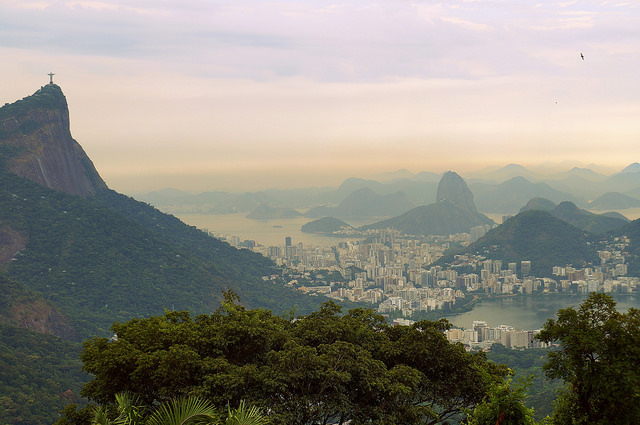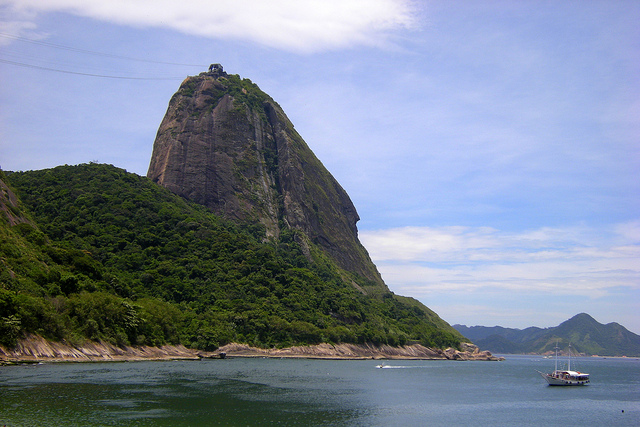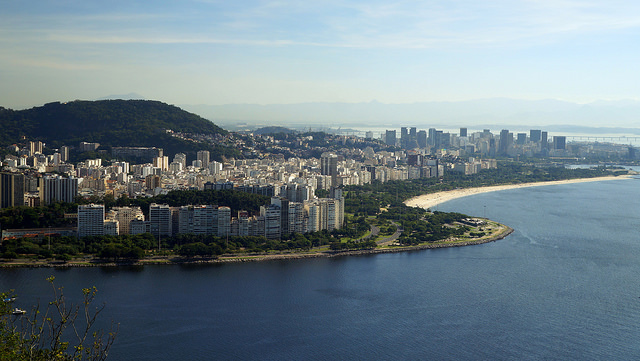About Rio
 The tourism capital of Brazil, Rio de Janeiro is famous for breathtaking landscape, laidback beach culture and annual carnival.
With a population of over six million people, this Marvelous City covers 1,224 squares kilometers and has a coastline of 246 kilometers. The exceptional interaction between the mountains and the sea provides an inspiring scenery to both locals and visitors, and was nominated a World Heritage Site by UNESCO.
The tourism capital of Brazil, Rio de Janeiro is famous for breathtaking landscape, laidback beach culture and annual carnival.
With a population of over six million people, this Marvelous City covers 1,224 squares kilometers and has a coastline of 246 kilometers. The exceptional interaction between the mountains and the sea provides an inspiring scenery to both locals and visitors, and was nominated a World Heritage Site by UNESCO.
The guiding spirit of Rio is the lighthearted carioca way of life, which turns every inch of the city into the most enjoyable attractions. Among them are beaches, mountains, forests, open air sports and world-class events such as the New Year’s Eve, the Carnival and many others.
Packed with historical and cultural treasures, Rio is vibrant by day and dazzling by night. Its many flavors and colors offer something for people of all ages and interests.
Like its best known symbol, Christ the Redeemer, the city welcomes its guests with open arms. Rio de Janeiro hosted this year many of the 2014 FIFA World Cup Games, including the final, and will host the 2016 Summer Olympics and Paralympics, becoming the first South America City to host the Olympics.
Quick Facts about Rio
 Weather
Weather
Although the summer in Brazil officially starts in December, the weather in November can be already quite warm. Being the end spring, temperatures usually vary between the high 20’s and mind 30’s. During that time of year the weather is usually sunny, with some chances of tropical storms. Most restaurants, stores and other venues have air conditioning.
 Time Zone
Time Zone
Rio de Janeiro is in the GTM-3 time zone. However, due to the daylight savings times, in November the time zone is GMT-2.
 Language
Language
The language spoken in Brazil is the Brazilin Portuguese. Many people in the hospitality industry also speak English. Spanish is also understood by many in Brazil.
 Currency
Currency
The Brazilian monetary unit is the real (R$/BRL). Cash and traveler checks, especially US Dollars, can be exchanged at most banks or exchange houses as well as the major hotels. All major credit cards are accepted in Brazil.
 Electricity
Electricity
The standard voltage in Rio is of 110-120v, although many hotels are fitted with alternative power outlets for 220v. Other cities have different voltage. If traveling within Brazil, check the standard of particular destination.
 Communications
Communications
Rio has an excellent telecommunications system which links Rio to the rest of Brazil and world. Direct dial and collect calls can be placed from any telephone. Pay phones are located throughout the city and operate with telephone cards, which can be purchased at most newsstands. The International Direct Dial (IDD) code for Brazil is 55 and the city code for Rio de Janeiro is 21. When calling within Rio it is not needed to dial the country and city codes.
 Airports
Airports
The Galeão – Antônio Carlos Jobim Internacional Airport is more commonly know as Galeão Airport or GIG and is located 20km (12 miles) from downtown.
Telephone: +55 21 3004-6050
www.riogaleao.com
Downtown, the Santos Dumont Airport services regional flights and the Rio-São Paulo air shuttle, as well as executive jets and smaller aircrafts.
Telephone: +55 21 3814-7070
www.aeroportosantosdumont.net


 The tourism capital of Brazil, Rio de Janeiro is famous for breathtaking landscape, laidback beach culture and annual carnival.
With a population of over six million people, this Marvelous City covers 1,224 squares kilometers and has a coastline of 246 kilometers. The exceptional interaction between the mountains and the sea provides an inspiring scenery to both locals and visitors, and was nominated a World Heritage Site by UNESCO.
The tourism capital of Brazil, Rio de Janeiro is famous for breathtaking landscape, laidback beach culture and annual carnival.
With a population of over six million people, this Marvelous City covers 1,224 squares kilometers and has a coastline of 246 kilometers. The exceptional interaction between the mountains and the sea provides an inspiring scenery to both locals and visitors, and was nominated a World Heritage Site by UNESCO.



 Weather
Weather Time Zone
Time Zone Language
Language Currency
Currency Electricity
Electricity Communications
Communications Airports
Airports